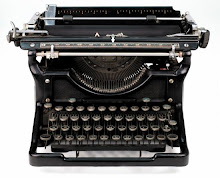Stars
In Our Bedroom After The War

Lately, it’s been somewhat bothersome to me that many
music reviewers are either washed-up, bitter ex-musicians
or elitist scene-kids. Let’s take a look at a recent review
from Pitchfork by one Ryan Dombal, shall we? This review
charts and graphs the newest offering by Stars (In Our
Bedroom After The War) at a meager 7.4/10. Without
getting too far into the semantics (and the idiocy) of rating
systems in and of themselves, I think it is urgent that we
delve into the currency of the actual review. Without
spoiling the cinematic ending, Dombal’s lengthy review
goes on to basically yawn over the newest Stars album,
criticizing it with containing ‘overt dramatic airs’ and
‘blubbering melodrama’. This is evident right out of the
gate as Dombal claims the title track ‘suffocates under
its own ticker-tape parade epic-ness’. Right. And…you
don’t see any hypocrisy within the very unglamourous
writing of your review, Ryan?
Before any further desecration of Dombal, the actual
album in question needs some simplistic framework with
which to level the critical playing field. Torq Campbell
and Amy Millan have led Stars through four major full
length albums in just under six years. What sets IOBATW
apart from their former works (including the 2004
overnight indie masterpiece ‘Set Yourself On Fire’),
however, is its devotion to theme, plot and character
through all thirteen tracks. The stage is a non-descript,
war torn city that reveals an array of inhabitants who
are all trying to survive and seek the true essence of
their beings. From Torq’s drugged-out prostitute, living
for the pulse of excitement, in ‘Take Me To The Riot’ to
Amy Millan’s optimistic gleam in ‘Today Will Be Better,
I Swear!’, IOBATW is an homage to an all-too familiar
scene that is universally relatable. The splendid and
varied instrumentation is really only the canvas for each
song, splaying everything from horns to driving beats
and airy synths. Although the eccentricity drips from
every piece of album artwork, Stars have released a
work that will rival many forms of art for ages to come.
Any integrity within Dombal’s anti-glitz, anti-Campbell
review is really laid to waste in its length: almost 900
words – all of which utterly contradict what I squeaked
out in half of that. Really? Is this the sum of modern
art and music reviews? Never amazed, luddite writers
who formulate inaccessible, lofty pages of jargon that
an English major will need a dictionary to sift through?
Dombal even goes on to pan Campbell’s acting
background (which he probably googled quickly and
found on IMDB), inserting a jab about a made for TV
movie involving a sea monster and a boy in his early
acting career. What happened to just letting the
listener know what the album is all about? Despite
endless critical fallacy, there really is no substitution
for the genuine article and Torq, though soap-boxy
and breathy at times, sells himself and his band in the
urgency of every lyric of every song on this album. And
so, ending with the words of Dombal himself: ‘as any
Hollywood-type will tell you, an actor is only as good
as his script.’ I guess I’ll shop around for some more
scripts!


1 Comments:
I would like to point out that pitchfork as a music site in general is pretty stuck up (they gave one of the most innovative albums I've ever heard a 0.7 and spent the entire review comparing them to Sufjan Stevens without even talking about it's level of complexity). Any reviews you read there are generally based more on how popular the artist is rather than the actual goodness of the album (Old Modest mouse albums=high scores, New Modest Mouse Albums=low scores etc.)
Post a Comment
<< Home